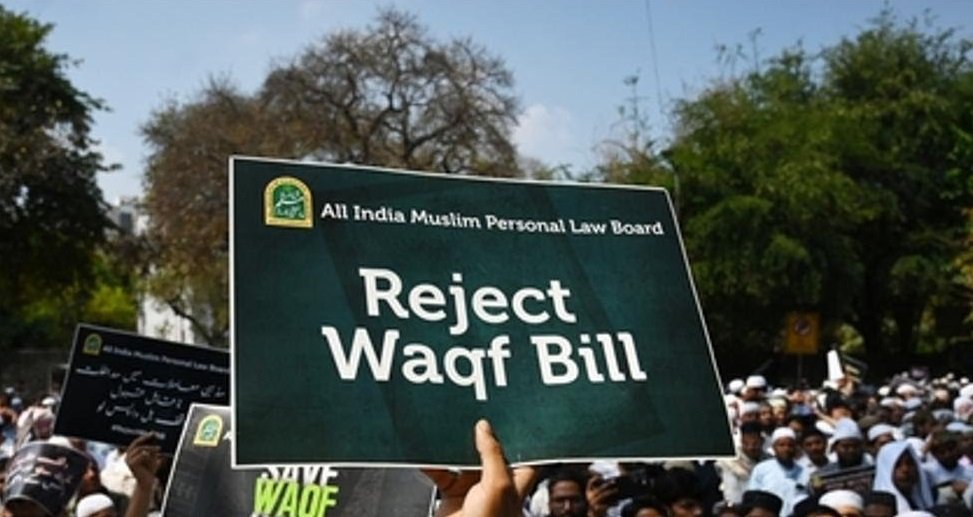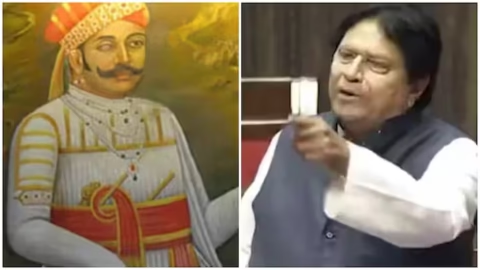Visuals from the Bengal capital showed a large crowd waving the national flag and carrying posters proclaiming ‘we reject Waqf amendment’ and ‘Reject Waqf Bill’ gathering at public meeting sites. Many of the protests, news agency ANI said, were organised by the Joint Forum for Waqf Protection
Visuals of the protests from Ahmedabad suggested a more charged atmosphere; a video shared by ANI showed police trying to forcibly remove elderly demonstrators squatting on the road. Police detained the chief of the state unit of the All India Majlis-e-Ittehadul Muslimeem, or AIMIM, and 40 of its members.
Similar scenes were witnessed in Chennai, where actor Vijay’s Tamilaga Vettri Kazhagam had announced a statewide protest. TVK workers gathered in Chennai and major cities, like Coimbatore and Tiruchirappalli, and raised slogans like ‘reject the Waqf Bill’ and ‘do not take away Muslims’ rights’.
The Tamil actor-politician – seen increasingly as a dark horse before next year’s Assembly election – called the Waqf Bill “anti-democratic” and said its passage asks questions of India’s secular foundation.
There was also tension in Lucknow.
Ashish Srivastava, Deputy Commissioner of Police (Central Lucknow) said, “We have asked everyone to make an opinion only after reading the whole bill and we are monitoring social media constantly…”
The protests in Bengal will add to the fire brewing ahead of next year’s election, with Chief Minister Mamata Banerjee having already said she will not allow the state’s Muslims to lose their lands.
Accusing the BJP of trying to divide the country, an accusation also levelled by the Congress – she declared the bill would be repealed when the new non-BJP government forms the central government.
One concern of all these protesters is that the new Waqf laws will be applied retroactively, thereby affecting existing properties. However, Union Minority Affairs Minister Kiren Rijiju told Parliament this week (and he was backed by Union Home Minister Amit Shah) it is prospective in nature.
The changes to the Waqf laws – which govern how Muslim charitable properties are governed – were cleared by Parliament after nearly 20 hours of MPs trading fiery speeches; those from opposition called it “anti-Muslim” while those from the treasury benches hailed the “historic reform”.







